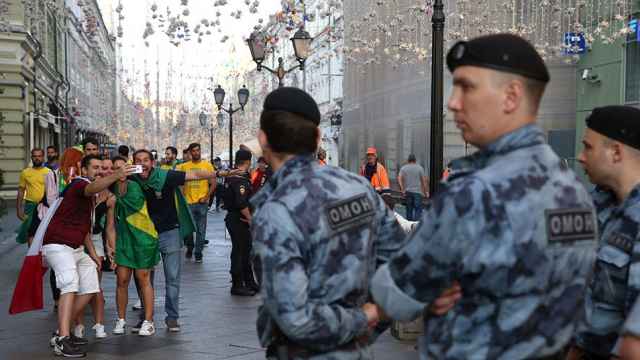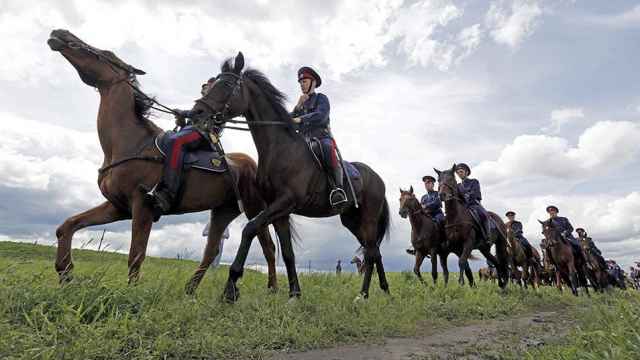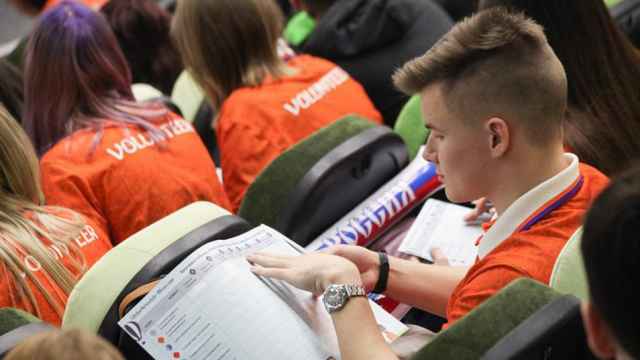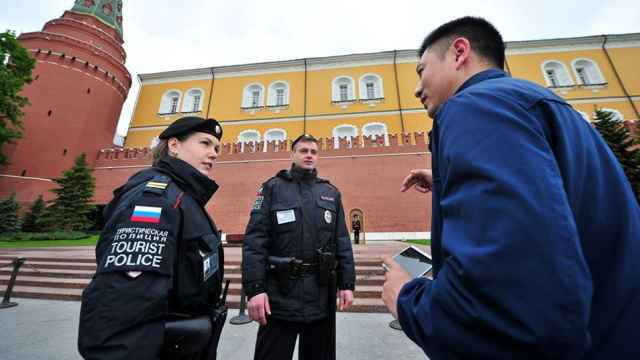Police in Moscow arrested their first fan using facial recognition software deployed for the World Cup.
Moscow’s “Safe City” surveillance system includes 160,000 closed-circuit cameras. The city launched a pilot program of facial recognition technology around metro and train stations near Luzhniki Stadium ahead of the World Cup.
The technology was used to flag a theft suspect during the Russia-Spain game, a senior Moscow City Hall security official told state-run TASS news agency Tuesday.
“The… system matched camera footage with a citizen on a federal wanted list for theft,” the head of regional security Vladimir Chernikov told TASS.
About 50,000 photographs of criminal suspects and blacklisted foreign fans were uploaded into the surveillance system installed at Moscow’s fan zone and the nearby Luzhniki Stadium, Chernikov said.
Moscow’s facial recognition pilot program also led to the arrest of 42 suspects in the month leading up to the football championship, which began on June 14.
Reuters contributed reporting to this article.
A Message from The Moscow Times:
Dear readers,
We are facing unprecedented challenges. Russia's Prosecutor General's Office has designated The Moscow Times as an "undesirable" organization, criminalizing our work and putting our staff at risk of prosecution. This follows our earlier unjust labeling as a "foreign agent."
These actions are direct attempts to silence independent journalism in Russia. The authorities claim our work "discredits the decisions of the Russian leadership." We see things differently: we strive to provide accurate, unbiased reporting on Russia.
We, the journalists of The Moscow Times, refuse to be silenced. But to continue our work, we need your help.
Your support, no matter how small, makes a world of difference. If you can, please support us monthly starting from just $2. It's quick to set up, and every contribution makes a significant impact.
By supporting The Moscow Times, you're defending open, independent journalism in the face of repression. Thank you for standing with us.
Remind me later.






